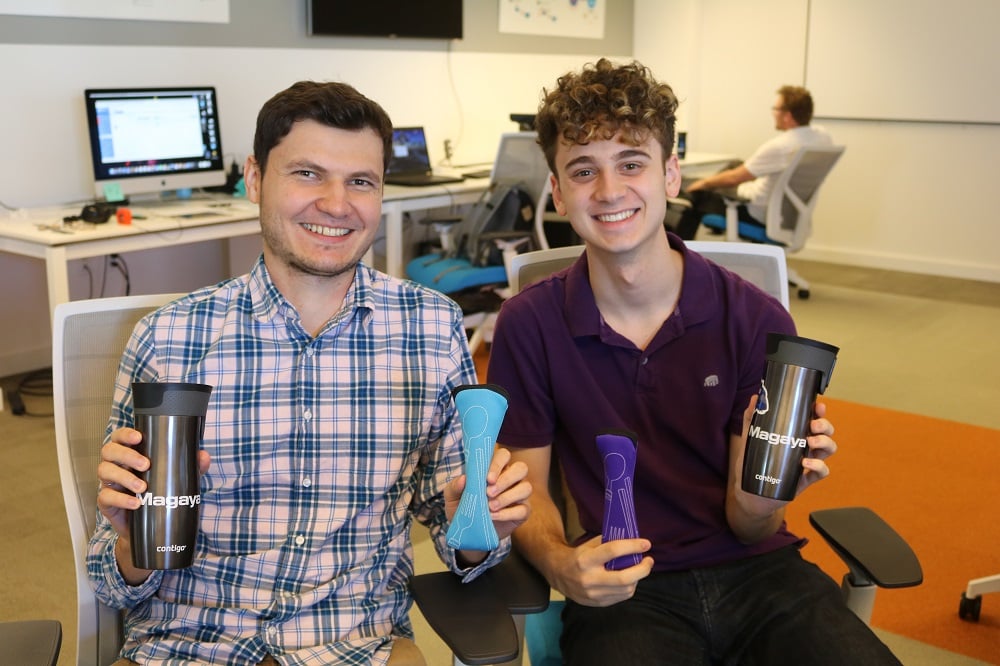Magaya Goes Green: Reducing Use of Plastics to Save Our Oceans
Nov 2, 2018 | Company
Magaya is proud to join the effort to keep our oceans and waterways clean of plastic waste by switching to reusable cutlery and cups for all employees.
"To reduce the number of plastic water bottles that end up in the trash, we replaced the bottles that we kept in our conference room refrigerators with refillable pitchers and beautiful cups that we wash instead of throw away," said Gabriel Ruz, Magaya Co-founder and CEO of Revenue.

"We also stopped buying Styrofoam cups. We used to buy four boxes a month of 1,000 cups each. That's 48,000 cups per year. Multiply that across all the companies in Miami, and imagine the number of single-use, disposable cups in our community. We’re just one company, but when we realized that yearly number, we felt compelled to make a change. We cut the waste by giving every employee their own Contigo water bottle. We also purchase kits of steel forks, knives spoons, and chopsticks for each employee. We got a variety of colors for employees to choose from, and they love them." Magaya's Gabriel Ruz.
Plastics from consumable items such as beverage bottles and caps, food wrappers, straws, and bags account for millions of pieces of trash collected from waters. See the infographic on the "As You Sow" website for more numbers:
The supply chain industry is in great position to make an impact on improving the environment, for example, by reducing paper documentation with the eAWB, reducing carbon emissions from cargo ships, responsible ballast water policies, safe transport of live animals, fair pay and working conditions for ship employees, and more in many areas of the supply chain.
We applaud the recent announcement by Mondelez International that they will make all their packaging recyclable by 2025. Mondelez produces beverages, candy, crackers, cookies, and other snacks. Other large corporations making similar commitments include Unilever and Kraft Heinz. Unilever products include soaps, cleansers, tea, ice cream and more. Kraft Heinz makes ketchup, cheese, beans, coffee and more. That's a lot of plastic bottles, cardboard boxes, and plastic wrappers. Each company's website includes details about their efforts to make a positive impact on communities and the environment.
"As far as back 2015 a study estimated that 8 million tons of plastics are swept into waterways annually — equivalent to a garbage truckload every minute. In the marine environment, plastics break down into indigestible particles that marine life mistake for food. If no actions are taken, oceans are expected to contain more plastic than fish by 2050," wrote Material Handling & Logistics.
“We are glad to make a contribution, both as part of our community and the world,” Mr. Ruz said.
Recent Posts
- Cargo Jettison: How to Protect Yourself from a Growing, Throwing Problem
- What we Learned in the First-Ever G2 Grid® Report for Freight Management Software
- 4 Key Ways Freight Forwarders Can Use Software to Optimize Import Operations
- Essential Features for Exporters to Look For in Freight Management Software
- What Shippers Need to Know About the Digitization of Freight Rates